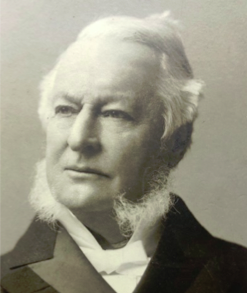From silk hats to horse manure…The voluminous paid bill files of Joseph Wakeman Mather
- Donn Smith
- Feb 8, 2023
- 1 min read
In the Homestead attic was an alphabet-tabbed accordion file containing invoices paid by Joseph Wakeman Mather (Stephen Tyng Mather’s father) during the 1890s—more than 400 bills in all. These bills offer insight into commerce in that era as well as the activities of the Homestead.
The Homestead was a working farm. There are bills for nitrate soda, phosphate, and other fertilizers including, yes, horse manure. We also find bills for a farm wagon, cultivator, harrow, hog feed, and oats. And there’s a bill from Stephen Hoyt’s Sons Co., nurseymen in New Canaan, for asparagus, rhubarb, raspberry, currant, and blackberry plants.
There was an invoice for winemaking supplies and a bill from a New York warehouse for storing apricots, peaches, and prunes through the winter. We even find the purchase of two pigs for $5 from his nephew, David Nelson Mather.
There are bills from companies we still know—Brooks Brothers, The Bank of New York, and the New York, New Haven & Hartford Railroad—as well as the now-departed including Lord & Taylor, John Wanamaker, and W&J Sloane.
Home furnishings were purchased such as an upright piano with stool for $275, rugs, beds, bureaus, and an assortment of furniture purchased from his then
72-year-old cousin, Ann Elizabeth Lockwood for $86.
And Joseph Wakeman Mather appears to have been a well-attired gentleman of the era. A coat and vest from Brooks Brothers for $39.50…five bills for boots and shoes from J.S. Coward and from N. Espenscheid for $6, a silk hat.






Comments